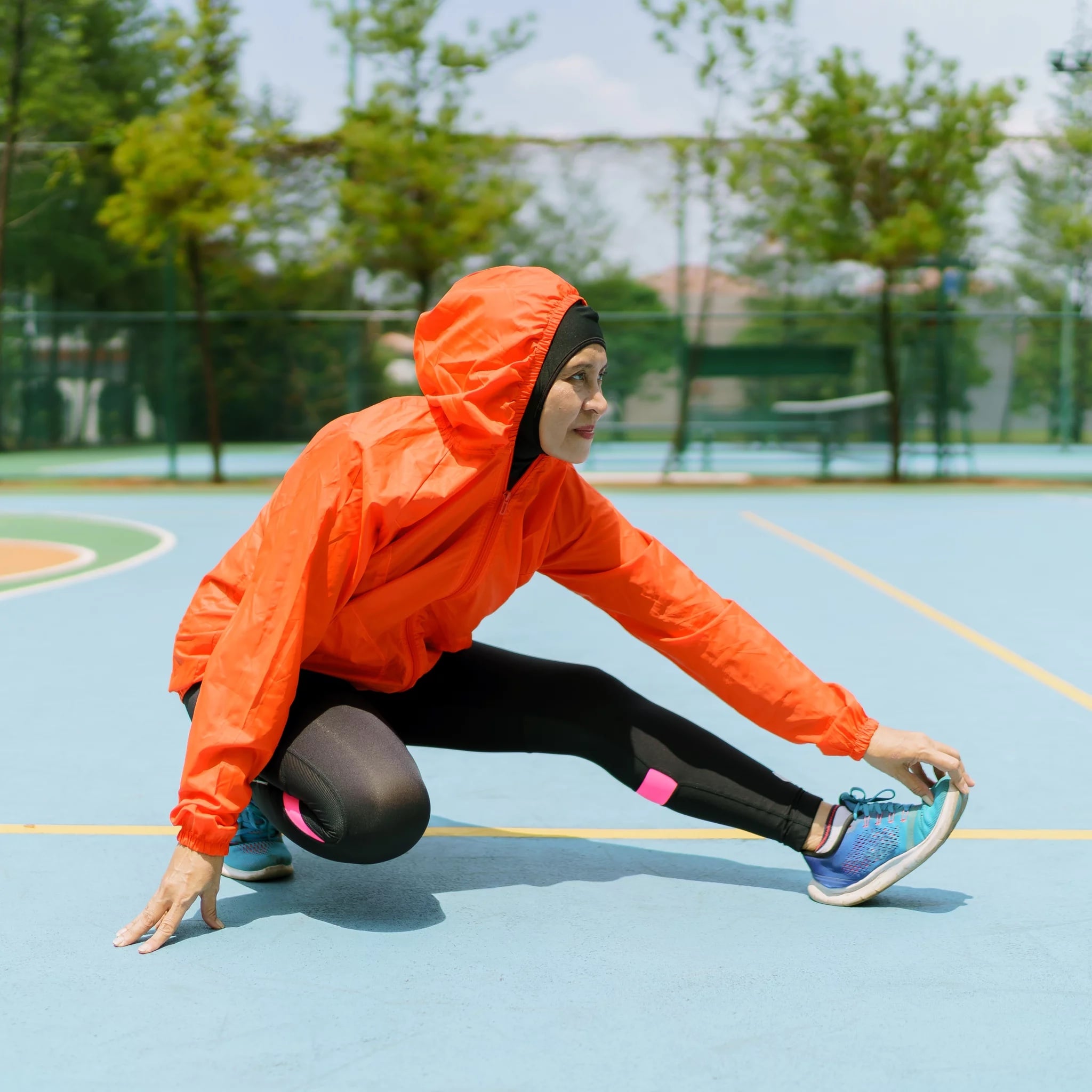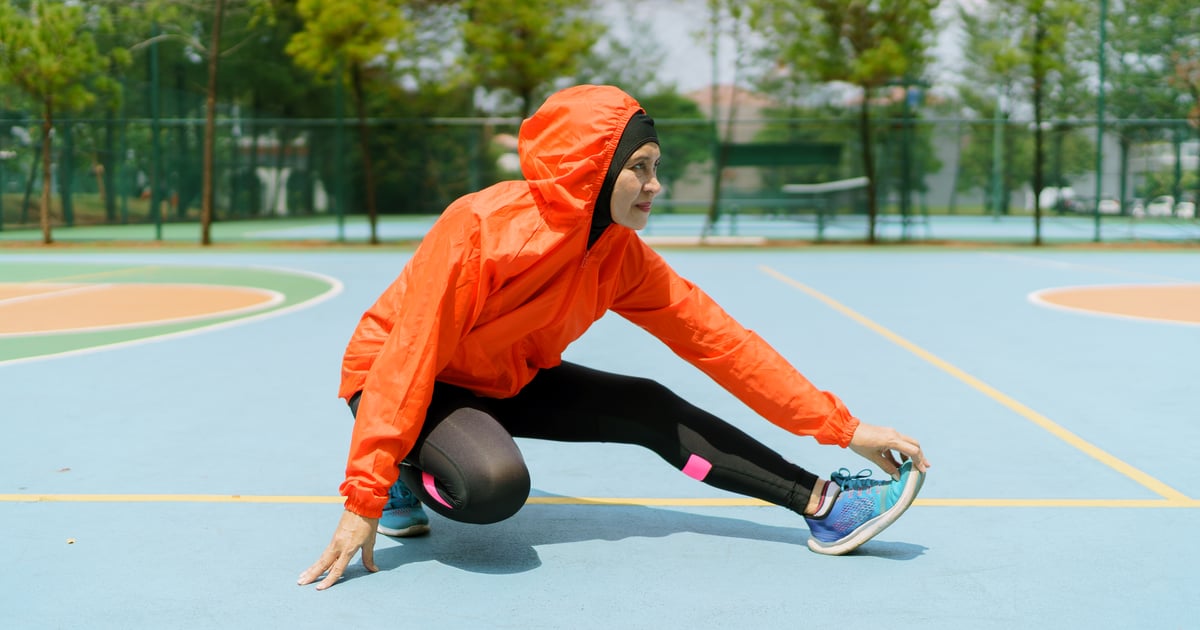
For those trying to maintain their workout routine during Ramadan, fasting can present some challenges. Considering you can only eat and drink before the sun rises and after the sun sets, you have to be a little more strategic with your workout timing. After all, you can’t eat a post-workout snack or even sip water between dawn and dusk. That makes fueling your body during workouts and staying hydrated during Ramadan a bit more complicated.
Thankfully, Muslim trainers are here to help. British Muay Thai boxer Nesrine Dally — an Apple Fitness+ trainer, Nike trainer, and NASM performance enhancement specialist and corrective exercise specialist — does a #FastedandFurious series on Instagram each year to share helpful tips on staying healthy and active during the month of Ramadan. And Faris Khan, CSCS, a fitness and performance coach, offers a free Ramadan training guide as well as tips on his Instagram.
Here’s what they both have to say about when and how to work out during Ramadan.
When to Work Out During Ramadan
When it comes to timing your workouts during Ramadan, Dally says you may need to shift your usual schedule. In a video posted to her Instagram in 2021, Dally explains that when you work out depends on your personal preference; however, she recommends training one to three hours before iftar, the evening meal, so you’re able to rehydrate and refuel post-workout.
That’s what Dally does, personally. She prefers to work out an hour or two pre-iftar, and her body has become accustomed to it, she tells POPSUGAR. “I’m aware of my limits and how to control the volume and intensity of my sessions,” she says. You can hydrate and eat a big meal once your sweat session is done.
Training too early in the day might leave you feeling slightly dehydrated and low on energy, Dally says in her video, which is why she advises against exercising in the morning or around lunchtime. But if this is something you’re used to, that’s OK, she adds. Everyone’s body is unique, and some people tolerate fasted workouts better than others.
Case in point: Khan takes a slightly different approach. He recommends choosing between three different training windows: in the morning before starting the fast (because “you have energy from the night before, and you can eat and drink right after,” he writes in an Instagram post; an hour before breaking the fast (so you “can eat and drink right after”); or two to three hours after breaking the fast (with a “fully digested meal in your body, [you] can train the most intense here,” he shares).
How to Adjust Your Training During Ramadan
In addition to paying attention to your timing, Khan also recommends reducing your overall workout volume and intensity (i.e. how much and how hard you’re working out), focusing on compound exercises, and always listening to your body. If you’re exercising after fasting all day, you’ll have less fuel readily available for your body to use to power your workout, so don’t be surprised if you can’t lift as heavy, do as many reps, or run as far as usual.
Similarly, Dally tells POPSUGAR that it’s helpful to think about Ramadan as a time to train for maintenance, rather than a time to aggressively pursue goals. In a 2020 interview with British Vogue, she explained that this means keeping up a “good level of base strength, conditioning and moderate aerobic training.” She also told the outlet that if you’re exercising before iftar, focusing on shorter, low-impact workouts that involve bodyweight moves or use light weights are ideal.
Dally tells POPSUGAR she suggests prioritizing strength training during Ramadan because it’s “the best way to reduce muscle loss during the month, maintain a good level of strength, and keep the body resilient and ready to resume your schedule post-Ramadan.”
If you need some inspiration, check out this beginner weightlifting plan or this fasted full-body strength workout Dally posted on Instagram.
— Additional reporting by Lauren Mazzo
Image Source: Getty / Deby Suchaeri
